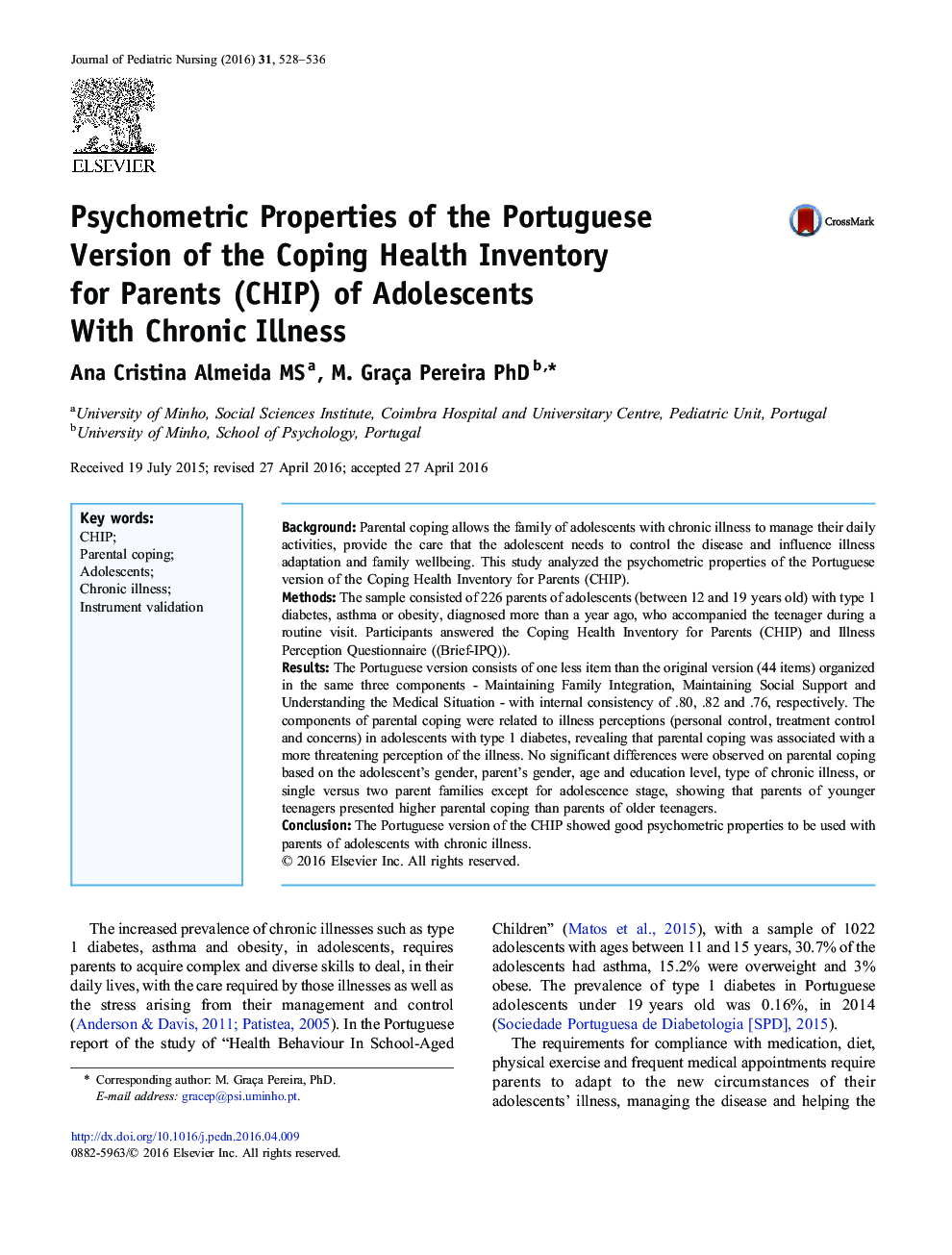| Article ID | Journal | Published Year | Pages | File Type |
|---|---|---|---|---|
| 2668293 | Journal of Pediatric Nursing | 2016 | 9 Pages |
•The Portuguese version of CHIP is similar to original version with three components.•No differences based on gender, type of chronic illness, and type of family unit.•Parents of adolescents (age12–13) show higher levels of Family Integration coping.•The Portuguese version of CHIP presents good psychometric qualities.
BackgroundParental coping allows the family of adolescents with chronic illness to manage their daily activities, provide the care that the adolescent needs to control the disease and influence illness adaptation and family wellbeing. This study analyzed the psychometric properties of the Portuguese version of the Coping Health Inventory for Parents (CHIP).MethodsThe sample consisted of 226 parents of adolescents (between 12 and 19 years old) with type 1 diabetes, asthma or obesity, diagnosed more than a year ago, who accompanied the teenager during a routine visit. Participants answered the Coping Health Inventory for Parents (CHIP) and Illness Perception Questionnaire ((Brief-IPQ)).ResultsThe Portuguese version consists of one less item than the original version (44 items) organized in the same three components - Maintaining Family Integration, Maintaining Social Support and Understanding the Medical Situation - with internal consistency of .80, .82 and .76, respectively. The components of parental coping were related to illness perceptions (personal control, treatment control and concerns) in adolescents with type 1 diabetes, revealing that parental coping was associated with a more threatening perception of the illness. No significant differences were observed on parental coping based on the adolescent's gender, parent's gender, age and education level, type of chronic illness, or single versus two parent families except for adolescence stage, showing that parents of younger teenagers presented higher parental coping than parents of older teenagers.ConclusionThe Portuguese version of the CHIP showed good psychometric properties to be used with parents of adolescents with chronic illness.
